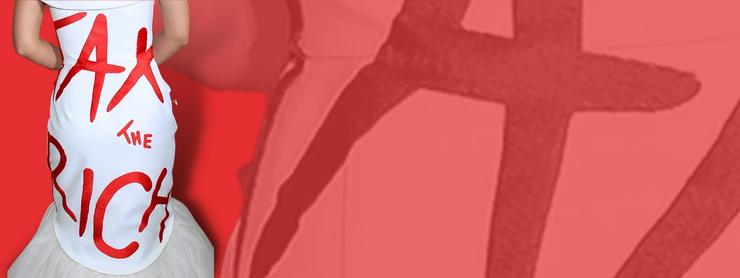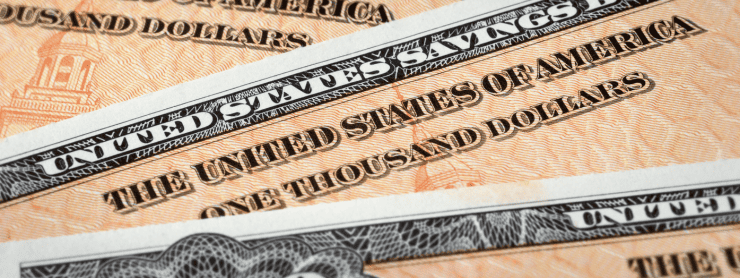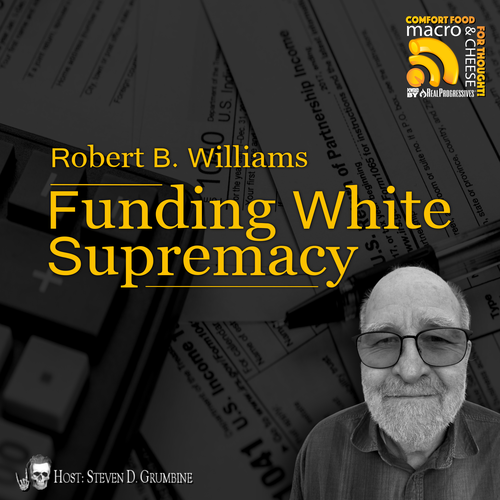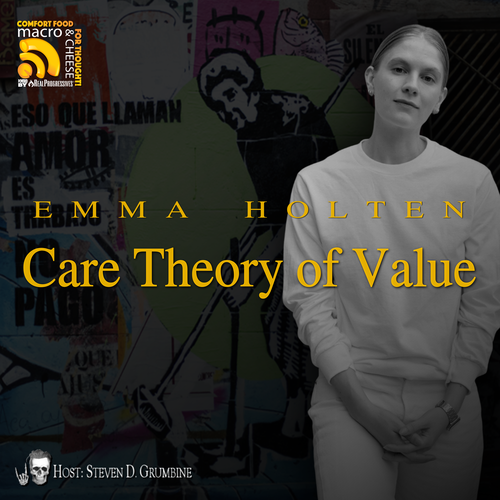Our federal government doesn’t need revenue. Taxes serve as a gas pedal or brake for an economy. They drive the need for currency. They stave off inflation and can be used to break up pooled concentrations of wealth that are destructive to a functioning democracy and economy. So what’s the fuss about marginal income tax rates and “fair share”? Why the chatter about how will the government get money to fund its operations?
First we must decouple the idea that spending and taxing are linked – Taxes are not a financing operation at the federal level. In fact, taxes are destroyed upon receipt. You see, the dollar is nothing more than a tax credit. A unit of measure. Just like a run in a baseball game.
All government spending is new money. Every cent. From social security to government contracts. All new money. Accounts are merely debited & credited. Marked up or marked down. Congress issues instructions to the Fed who makes deposits in the Treasuries accounts & spending ensues.
Second, wealth inequality destroys a functioning society. You can easily see how the issue began in earnest in the 1970s and went absolutely crazy in the 1980s, as government spending on the people withered and deregulation became the norm. Programs were cut, taxes on the wealthy dropped precipitously, and the wealth gap grew exponentially almost overnight. The wealthy had access to the halls of power and money purchased favors and corruption reigned supreme. It still does and continues to worsen. Money has been deemed speech and corporations deemed people. We have a non-functioning plutocracy that serves wealth and capital and destroys the average citizen.
By having an outsized voice in our “democracy” and outsized access to real resources, legal services, political favors and a toxic carbon footprint, the wealthy have taken on a largely parasitic role within our society. They deplete resources and rob us all of our voices. We all lack access to those in power who now, almost exclusively, cater to their largest donors and think tanks that serve the corporate desires for profit, cheap labor and easy, favorable market conditions.
Removing some of that power by raising marginal tax rates is not about “PAYING FOR” programs. It is about mitigating income inequality, which has very little to do with “fairness” about tax rates & more to do with fairness of access to Democracy & the natural resources of our nation. To being able to effectively petition their representatives as one voice, one vote. Clearly that is not the case today and raising marginal rates provides a meaningful pathway to rebalancing Democracy, not balancing the budget.
Third idea is the real resources of our global community. It has been widely reported that the world’s eight richest people have same wealth as poorest 50%. Think about that. Seriously pause and consider that 8 people can buy and sell entire countries and all the underlying natural resources contained within while people are still attempting to secure food, shelter and basic human rights like healthcare.
With the most recent IPCC report on climate change showing 11 (more like 7) years before significant disasters become commonplace, we must take radical steps to curb carbon emissions and by extension, that related back to marginal income tax rates. Sadly, this doesn’t necessarily address rents, wealth accumulation and other means of hiding wealth to avoid taxation. Sounds like “taxation is theft” unless you understand that keystrokes and digits should not be so amassed to allow plunder of the natural resources of our planet.
No matter how noble one might be, extreme wealth inequality is damaging to the world and the people living in it.
Ayn Rand once wrote: “There is no difference between communism and socialism, except in the means of achieving the same ultimate end: communism proposes to enslave men by force, socialism—by vote. It is merely the difference between murder and suicide.” And in her fierce objectivist, rugged individualist approach to society and economics, poured gas on an already smouldering bomb of self-seeking & selfish elitism. Paul Ryan & many right-wing libertarians subscribe to this petulant mindset that makes saving lives so impossibly difficult.
You see, it isn’t whether we can save lives… it’s that they just don’t care to do so.
So remember when you hear of marginal tax rates and “fair share” we are not talking in anyway, shape or form about “paying for programs”. We are talking about healing our democracy, our planet from destruction.
Originally published on January 11, 2021 by @sdgrumbine as a twitter thread.










Hi Steve,
I just joined your Patreon after seeing you on Steve Keen and friends. I’m going to keep looking around your website about MMT. Steve Keen explains that, technically, there’s an important bond swap dance behind deficit spending. The first step is that Congress tells the Treasury to spend, and the Treasury, not the Federal Reserve, deposits money in people’s or firm’s bank accounts or mails checks that ultimately end up in somebody’s bank account (someone with no bank account who cashes a check spends it, and that money goes in the seller’s account. ) The Treasury overdraws its bank account with the Federal Reserve when it deficit spends. The Treasury’s overdraft is against the rules, so the Treasury sells bonds to banks to bring its account back in the black. The banks are eager to buy the bonds because they aren’t allowed to invest their reserves in any other way. Their reserves earn very little interest from the Fed (it was zero interest before the 2008 financial crisis–damn corporate welfare!) The banks then sell the bonds on the secondary market, and the Fed purchases them by marking up the bank’s account and marking down its own, much like you said. This final step in fiat money creation enables the Fed to have more assets (bonds) than liabilities–positive equity. Why does it want positive equity? Steve says it’s because banks would be outraged that the Fed requires them to have positive equity without it being in positive equity. Steve says the Fed could not achieve positive equity if this bond sale dance didn’t occur. The only limit to their bond purchasing capacity is that some people who buy the bonds on the secondary market won’t sell them. The Fed’s bond purchase is corporate welfare because the Fed would pay less for the bonds if it purchased them directly from the Treasury, but that is illegal. As a capitalist, Steve isn’t terribly worried about it, though. The Fed is able to buy back the bonds at a higher price with no trouble. I think banks make plenty of money on interest and fees and don’t need to invest their reserves too. The bank’s bond sales proceeds can be invested in their corresponding shadow banks, and I don’t know why they should be allowed to move reserves into shadow banks. Shadow banks are to blame for the 2008 financial crisis. The banks would hate it if they couldn’t invest their reserves in something, and their lobby is too powerful at the moment for the law to change. One thing is certain, the government never has to worry about getting out of debt, and it would be catastrophic for everyone if it tried to. Government debt is an asset to the public, and debt repayment shrinks the money supply, bringing on financial problems. I just don’t think we can continue growing and save the planet, and capitalism fails without growth. Socialism is the way to put everyone in a lifeboat, which is how we should view our planet and each other. Where I live, there used to be two or three snowstorms per year that caused schools to close for days. The last time we had sufficient snow for that was eight years ago–the schools have to use up their snow days on flurries that don’t even stick to the sidewalk. Why aren’t people more worried?
Fantastic comments
I would say where we have minor differences is the import placed on bonds. Bonds are a relic… a safe bet… but a relic… we could eliminate them and stay with a ZIRP or Zero Interest Rate Policy forever. My preferred state. Minus the import placed on bond sales, I am sympatico and grateful to have you onboard!
Inflation as a function of balance sheet changes
I have described inflation as the result of those with the ability or power to set and raise prices — that is to impose liabilities on society. Members of society then transfer assets to those with the power to impose liabilities. Those with power to raise prices also have the same liabilities to meet but have more of society’s assets to do so.
Central banks allegedly trying to reduce inflation impose additional liabilities on society covertly through the banking sector by raising credit costs. Again more of society’s assets are transferred to the banksters.
With the declining bargaining ability of non-unionized workers reducing or holding the line in their assets — the neoliberal agenda again — the balance sheets of workers and those with the power to change prices both change.
Assets minus liabilities equal equity (wealth).
Money minus debt equals wealth.
So inflation and the means of fighting it cause many of us to have less equity and the few with power to have greater equity.
Some of us borrow more money thereby causing a slight increase in the money supply as the banks create more credit from the demand by those of us borrowing. Throughout society that increase in the money supply makes it look like it is a cause of inflation but it is a result of inflation.
Yet we whinge and wring our hands trying to explain inflation and inequality. They are both a result of power and wealth.
These comments were inspired by Peter Radford’s article on RWER about wealth and power.